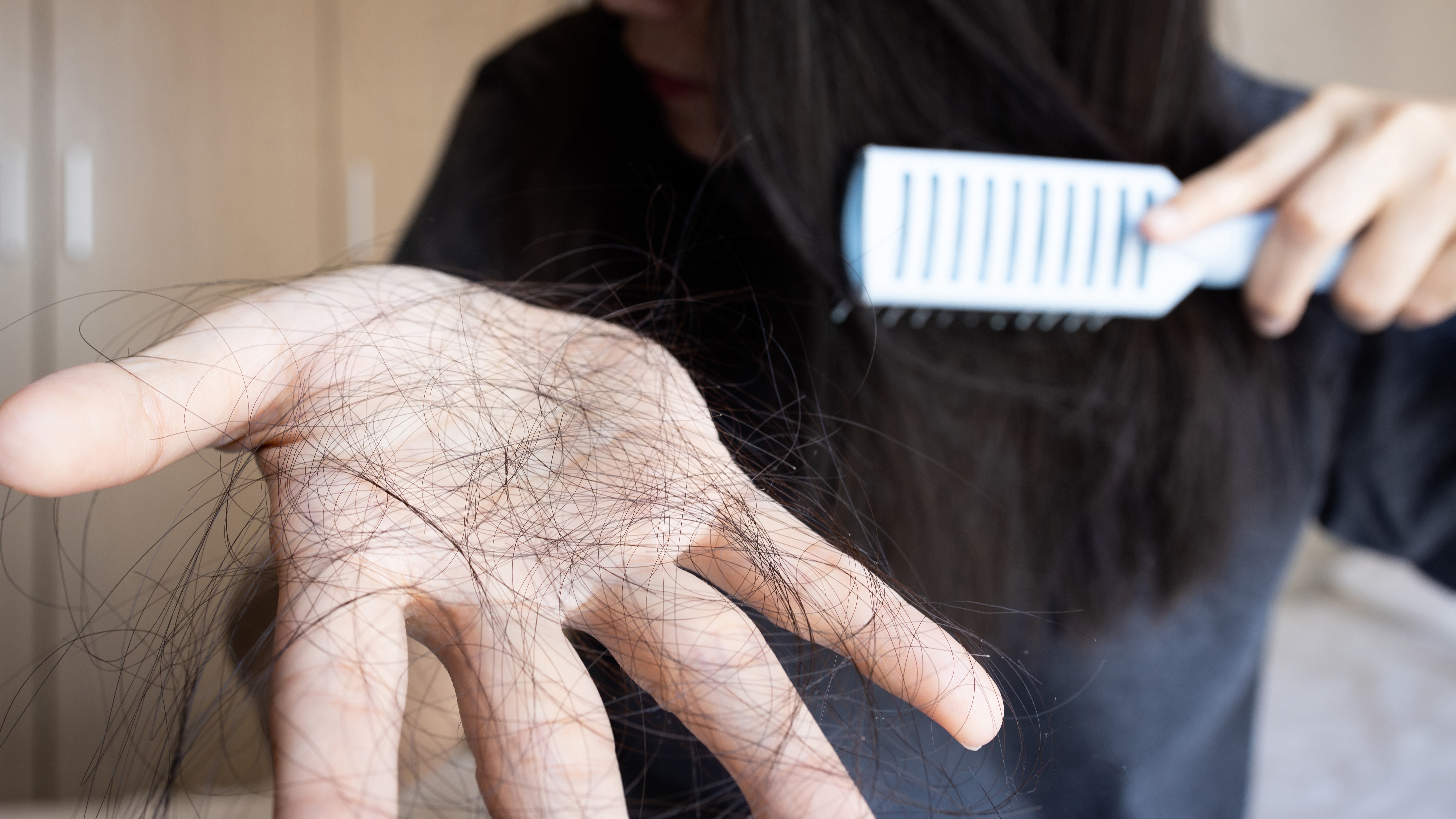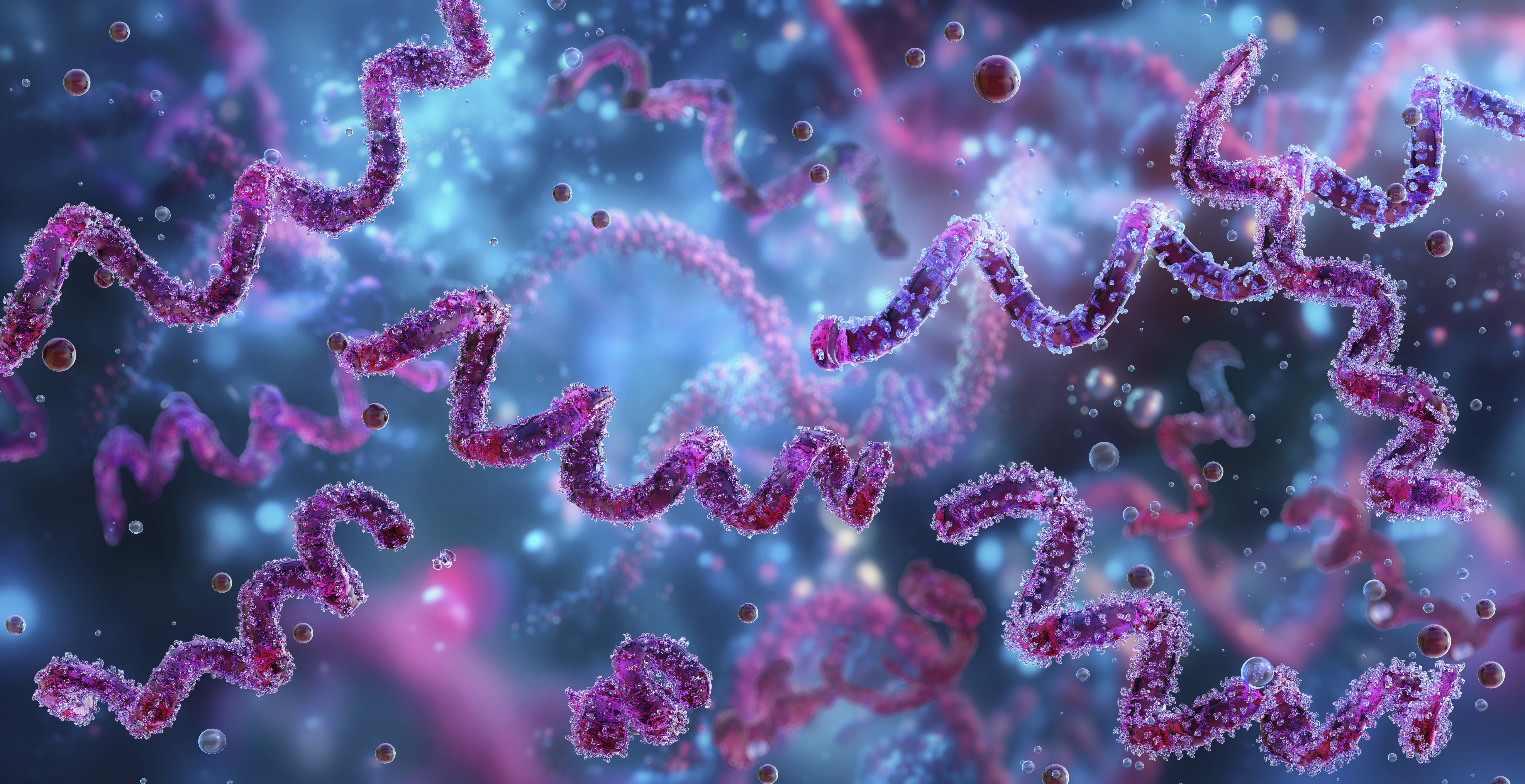We may finally understand stress-induced hair loss
Alopecia areata, which causes patchy hair loss, is often preceded by stress. Scientists are starting to figure out why through animal studies.

Get the world’s most fascinating discoveries delivered straight to your inbox.
You are now subscribed
Your newsletter sign-up was successful
Want to add more newsletters?

Delivered Daily
Daily Newsletter
Sign up for the latest discoveries, groundbreaking research and fascinating breakthroughs that impact you and the wider world direct to your inbox.

Once a week
Life's Little Mysteries
Feed your curiosity with an exclusive mystery every week, solved with science and delivered direct to your inbox before it's seen anywhere else.

Once a week
How It Works
Sign up to our free science & technology newsletter for your weekly fix of fascinating articles, quick quizzes, amazing images, and more

Delivered daily
Space.com Newsletter
Breaking space news, the latest updates on rocket launches, skywatching events and more!

Once a month
Watch This Space
Sign up to our monthly entertainment newsletter to keep up with all our coverage of the latest sci-fi and space movies, tv shows, games and books.

Once a week
Night Sky This Week
Discover this week's must-see night sky events, moon phases, and stunning astrophotos. Sign up for our skywatching newsletter and explore the universe with us!
Join the club
Get full access to premium articles, exclusive features and a growing list of member rewards.
Scientists are connecting the dots between stress and hair loss, including a common condition that causes hair to fall out in large patches.
High stress weighs heavily on the body — it can impact sleep, make the heart pound, and cause pains and muscle aches. It's also been tied to hair loss, such as the chronic hair-loss condition alopecia areata, in which immune cells attack hair follicles.
Anecdotally, this condition is often preceded by stress, but scientists have been unable to convincingly show that one leads to the other. Now, a new study published Wednesday (Nov. 26) in the journal Cell has finally joined the dots through a series of mouse experiments.
"I've always been fascinated by how life experiences leave marks on our bodies," study co-author Ya-Chieh Hsu, a regenerative biologist at Harvard University, told Live Science in an email. "We still know surprisingly little about how stress reshapes our tissues and contributes to disease." But hair cells offer an accessible and informative model for studying how stress affects the body, said Hsu.
Stress gets on your nerves
Both alopecia areata and telogen effluvium — another stress-related hair loss condition — affect growing hair cells. The 100,000 or so hairs on each person's head cannot be produced directly by stem cells; instead, they are grown by rapidly-reproducing "hair follicle transit-amplifying cells," or HF-TACs.
Hsu and her colleagues thought HF-TACs might be particularly vulnerable to stress. That's because stress reflects the body shifting into "fight-or-flight" mode, in which non-essential processes, like hair growth, are relegated in favor of metabolic processes essential to survival.
The authors used a mouse model to test how HF-TACs responded to short-term stressors. The researchers injected mice with resiniferatoxin, a chemical similar to capsaicin, the chemical that gives chili peppers their kick. Within 24 hours, the mice had lost 30% of their hair follicles.
Get the world’s most fascinating discoveries delivered straight to your inbox.
The team knew that resiniferatoxin injections activate the sympathetic nervous system, which controls the fight-or-flight response. They noticed that regions of the mice's skin in which more HF-TACs died were especially enriched with sympathetic nerve fibers. Blocking signals through these nerves stopped the hair loss. Additionally, blocking receptors on HF-TACs that respond to norepinephrine — a chemical released by active sympathetic nerves — also prevented hair loss.
Further analysis showed that the fast-growing cells rely heavily on their inbuilt powerhouses, the mitochondria, to support their rapid growth. But surges in norepinephrine activate receptors that then flood these mitochondria with calcium ions, meaning charged particles of calcium.
"The sudden calcium surge damages these mitochondria," Hsu said. "Once this happens, the cells lose their ability to maintain essential functions — such as energy production and ion balance — and they rupture." This, in turn, kills the hair cells.
Hair cells don't live forever under normal conditions. Instead, they enter a tightly-controlled stage called "catagen," in which many cells in a follicle die before the follicle resets for a new growth cycle. Cells killed by stress, in contrast, appear to die through an uncontrolled process called necrosis.
Hsu's team saw that necrosis triggered rampant inflammation in the nearby area, and that mice showed increased immune cell levels in their lymph nodes. Importantly, these new cells were self-reactive, meaning they were primed and ready to attack the mice's own tissues. The researchers showed that these cells could then infiltrate hair bulbs and damage them — as is seen in alopecia areata.
But another mystery of conditions like alopecia areata is that patients can experience hair loss for years after the stressful incident that kicked off their disease.
To look into this, the team allowed some of their stressed-out mice to calm down, and their hair cells to re-enter the growth phase. They exposed the mice to an inflammatory signal, like they might experience during an infection. This inflammation caused immune cells to once again attack the hair bulbs. But in mice that hadn't been stressed earlier, this immune activation did not lead to hair bulb damage.
"This provides a possible explanation for why some individuals experience alopecia that recurs long after the initial stress episode," said Hsu. These mechanisms also likely contribute to other forms of stress-related hair loss, she added, including telogen effluvium.
"In addition, many people experience hair thinning or shedding in [a] stressful period that is not formally diagnosed," she noted. "It is possible that some milder, under-recognized forms of stress-linked hair loss may share components of the pathways we describe as well."
Though the study is in lab mice, mapping the mechanism points to several steps where medical interventions could potentially reduce the impact of stress- and autoimmunity-related hair loss. Hsu is interested in exploring such treatments in future work, and also intends to explore how stress might contribute to other autoimmune conditions.
"There is much more to learn — not only in the skin, but across many organ systems," she concluded.
This article is for informational purposes only and is not meant to offer medical advice.

RJ Mackenzie is an award-nominated science and health journalist. He has degrees in neuroscience from the University of Edinburgh and the University of Cambridge. He became a writer after deciding that the best way of contributing to science would be from behind a keyboard rather than a lab bench. He has reported on everything from brain-interface technology to shape-shifting materials science, and from the rise of predatory conferencing to the importance of newborn-screening programs. He is a former staff writer of Technology Networks.
You must confirm your public display name before commenting
Please logout and then login again, you will then be prompted to enter your display name.
 Live Science Plus
Live Science Plus










